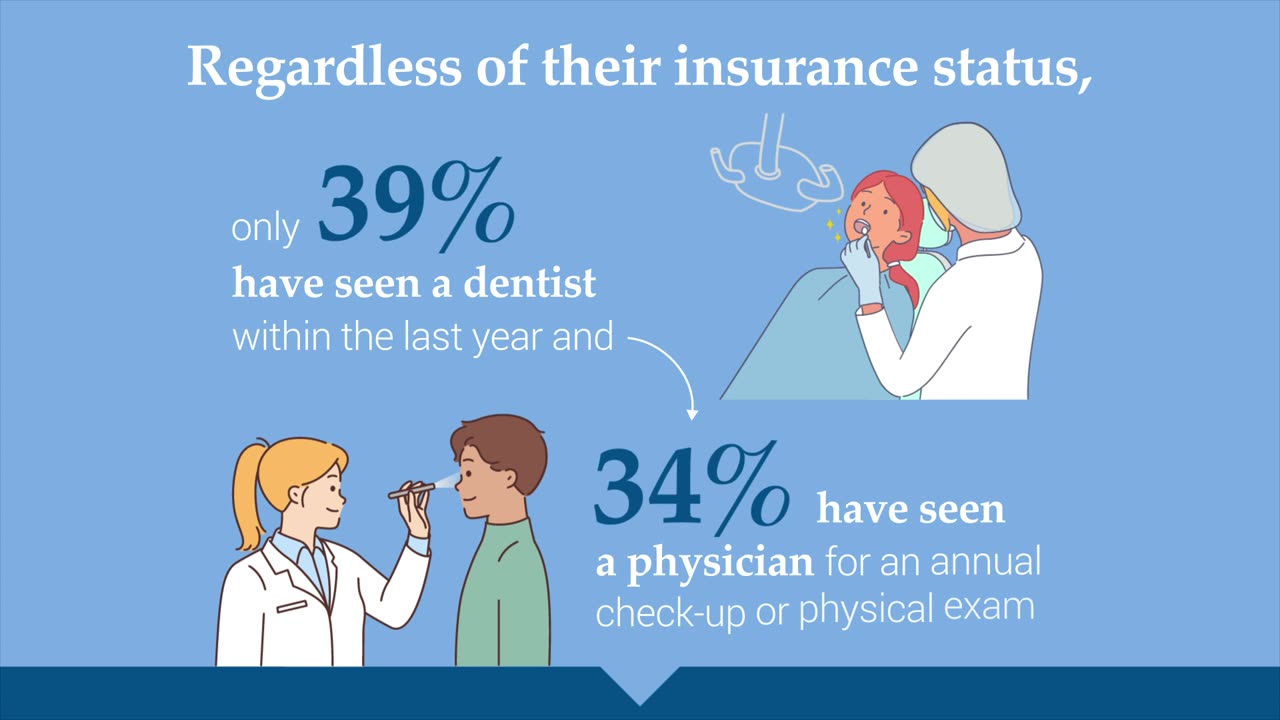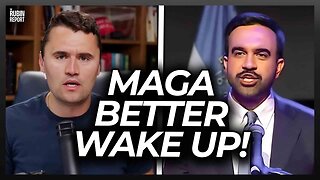Premium Only Content

2 in 3 only see a doctor when something feels extremely wrong, survey finds
Nearly two-thirds of Americans only go to the doctor when something feels “extremely wrong,” new research suggests.
A recent survey of 2,000 respondents found that 64% take a more reactive approach to their health, rather than a proactive one.
Men polled were particularly susceptible to this – 79% said they only go to the doctor in “extremely wrong”-feeling cases compared to 59% of women.
The survey, conducted by OnePoll on behalf of the Henry Schein Cares Foundation, also found that the average respondent had their last checkup two and a half years ago.
Sixty-five percent have not been screened for high blood pressure within the past five years, and 66% have not been screened for high cholesterol.
Approximately three-quarters of women have not had a mammogram or pap smear in the past five years, and 70% of men have not had a prostate exam in that time.
Overall, only 48% of insured respondents have gone to a physician for a physical exam within the past year.
Only 44% of all respondents have dental insurance, and respondents have gone an average of two years since their last routine dental cleaning or check-up.
Interestingly, 39% of those polled have seen a dentist within the last year, regardless of their insurance status, compared with only 34% who have seen a doctor for an annual check-up or physical exam.
In general, 78% of respondents said they feel comfortable at doctor appointments, but nearly one-third (27%) were more afraid of going to doctor’s appointments now more than they were before the pandemic.
Still, some of respondents’ least favorite parts of medical appointments don’t involve the doctor at all, such as sitting in the waiting room (29%) and taking the time to go to the appointment itself (21%).
Overall, Gen X and Baby Boomers were the least bothered by medical appointments, while Millennials and Gen Z ranked being touched or examined (22% and 27%), feeling pain (21% and 24%) and overall fear (21% and 22%) as among the top things that they dislike about visiting the doctor.
Results also showed that respondents generally trust their doctor's advice — with two-thirds of the overall group surveyed falling somewhere between “completely” and “mostly” trusting their counsel.
The survey also revealed that one in ten (10%) of Gen Xers said they “never” trust their doctor’s overall medical advice.
The biggest red flags patients look out for are doctors who appear to be disinterested in their well-being (40%).
“Despite all of the evidence underscoring the importance of regular preventive health care and screenings, many patients forgo or delay their care as a result of a lack of health literacy around the importance of preventive care or a lack of personal connection with their provider,” said Maureen Knott, President of the Henry Schein Cares Foundation. “Patients are much more likely to follow through with regular preventive healthcare when they are informed and experience a trust-based and compassionate relationship with their clinicians and all other members of their health care team.”
Overall, more than half (53%) say it is difficult to access medical care, and one in three (35%) say they would benefit from more information and education about the importance of screenings.
Just half (51%) of respondents have a rainy day fund for emergency medical needs totaling an average of more than $2,800 ($2891.15).
“This survey illuminates the structural, financial and behavioral challenges that persist as inhibitors to patients accessing preventative care,” said Allison Neale, Vice President of Public Policy for Henry Schein, Inc. and Managing Director of the Henry Schein Cares Foundation. “Yet regular access to integrated, preventive care has been shown to be a key component of improved overall health outcomes for patients, which benefits not only individuals, but also communities and our whole society through better health, increased productivity and economic growth. As it turns out, the old adage that an ounce of prevention is worth a pound of cure really is true.”
Survey methodology:
This random double-opt-in survey of 2,000 general population Americans was commissioned by Henry Schein Cares Foundation between February 21 and March 2, 2023. It was conducted by market research company OnePoll, whose team members are members of the Market Research Society and have corporate membership to the American Association for Public Opinion Research (AAPOR) and the European Society for Opinion and Marketing Research (ESOMAR).
-
 1:02
1:02
SWNS
2 days agoHow parents answer 46 questions from their kids a day
16 -
 3:35:48
3:35:48
Barry Cunningham
4 hours agoBREAKING NEWS: PRESIDENT TRUMP SPEECH AT THE MIAMI BUSINESS FORUM! (MIKE JOHNSON PRESSER)
52.4K8 -
 2:04:47
2:04:47
The Charlie Kirk Show
4 hours agoOnward | Henderson, Laurie, Miles | 11.5.2025
77.2K25 -
 2:15:52
2:15:52
Steven Crowder
7 hours agoWho is the Real Myron Gaines | Ash Wednesday
298K396 -
 1:07:53
1:07:53
Sean Unpaved
3 hours agoRankings, Recaps, & Deadline Deals: CFB Shake-Ups & NFL Trades
37.2K3 -
 2:13:33
2:13:33
Side Scrollers Podcast
5 hours agoAsmongold SUED for Emotional Distress + Hasan REJECTED+ INSANE Plane Crash + More | Side Scrollers
38.6K16 -
 1:00:32
1:00:32
VINCE
7 hours agoNYC Has Been Seized By The Communists | Episode 162 - 11/05/25
255K430 -
 1:47:26
1:47:26
LadyDesireeMusic
5 hours ago $0.01 earnedLive Piano & Convo Rumble Rants/ Subs to Request
28.1K3 -
 5:02:14
5:02:14
SOLTEKGG
6 hours agoGOING FOR KILL RECORD - BF6 SKIN Giveaway
21.1K1 -
 1:04:48
1:04:48
The Rubin Report
5 hours agoCharlie Kirk’s Warning for MAGA if Mamdani Won
53.1K209